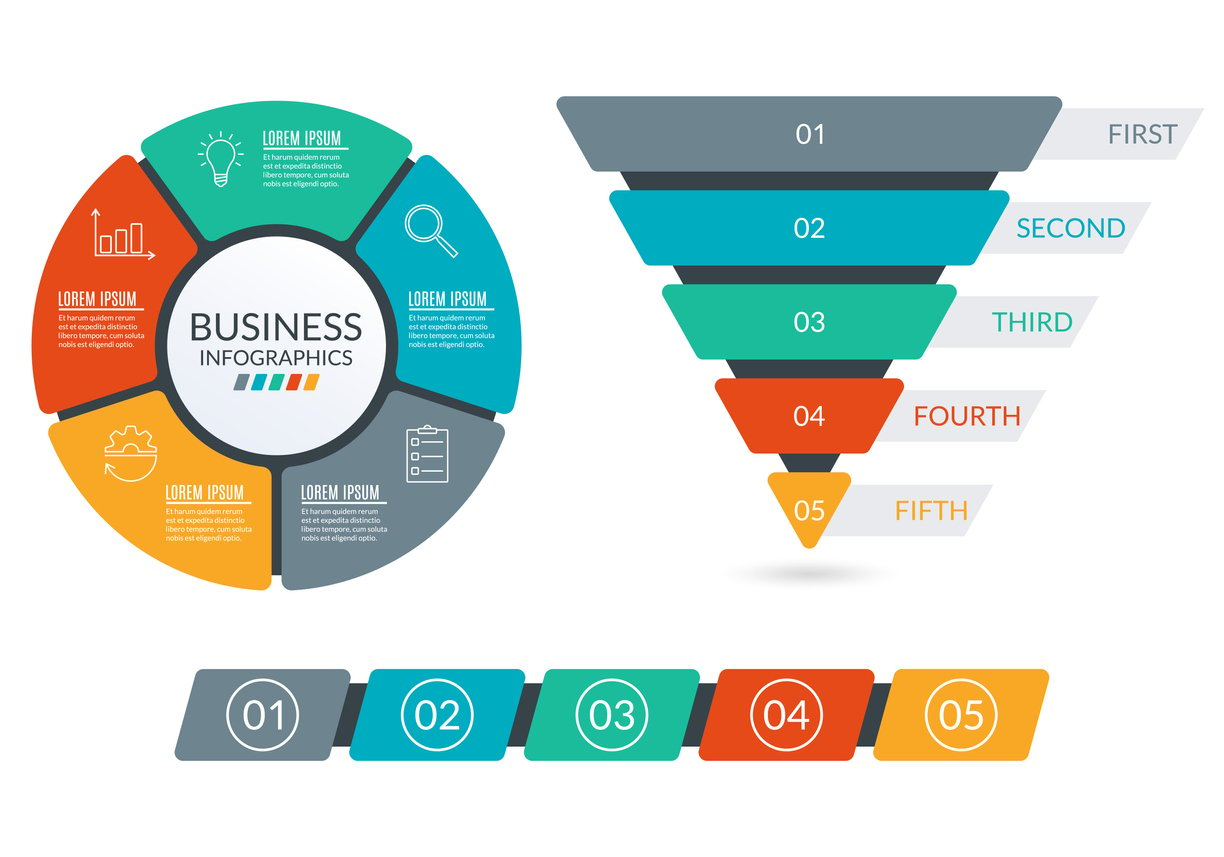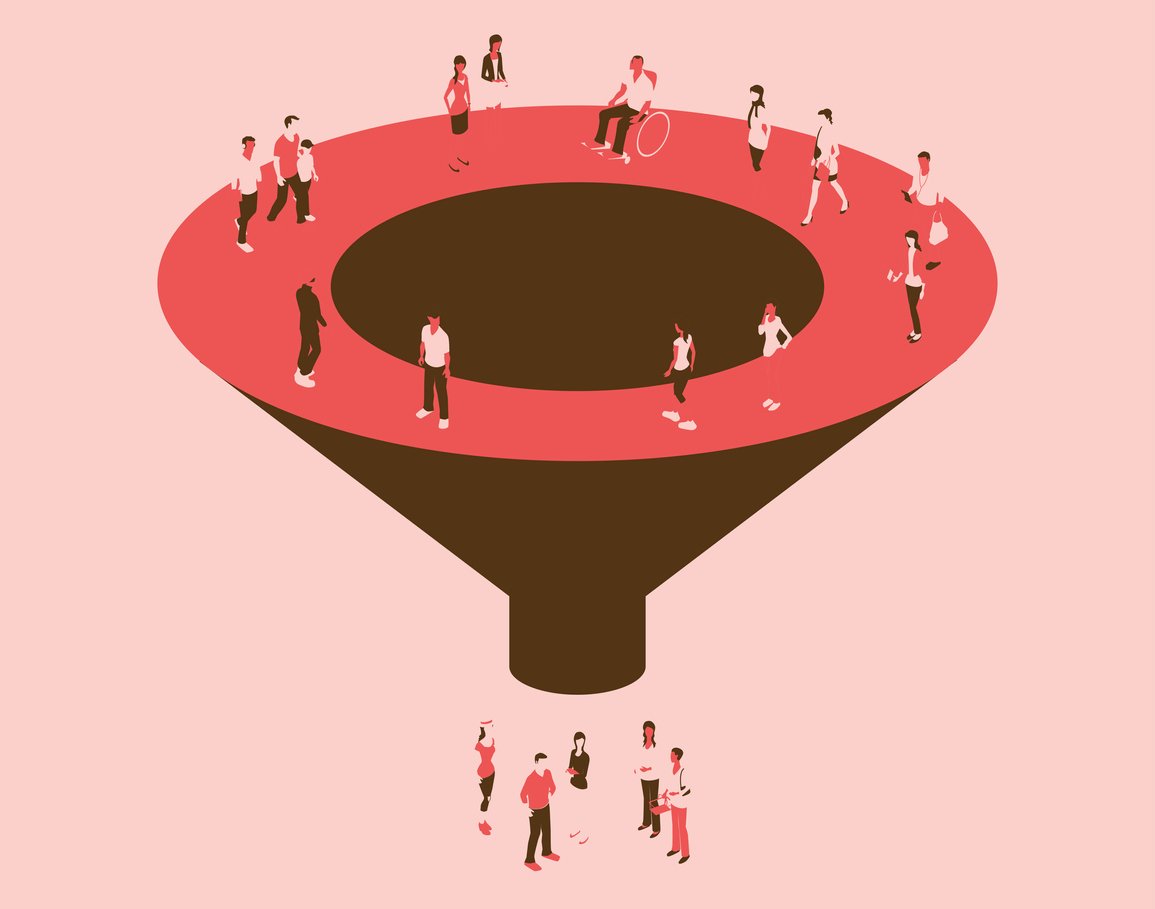
Benefits of Sales Training Programs and 5 Best Courses
 Updated on
Updated on
 By Carlos Correa
By Carlos Correa
Carlos Correa
Carlos has been involved in the sales space for well over ten years. He began in the insurance space as an individual sales agent, managing teams as s...
learn more
Carlos Correa
Carlos has been involved in the sales space for well over ten years. He began in the insurance space as an individual sales agent, managing teams as s...
Table of Contents
Table of Contents
It's a common belief that sales is a reactionary industry – go with your gut, learn by experience, act on the fly.
Unfortunately, intuition will only get you so far. Some salespeople have very little "natural intuition", and even sales reps with great instincts could benefit from sales training programs.
Sales training programs are outstanding resources for increasing conversion rates, boosting soft skills, and lowering employee turnover rates. They can teach pipeline management, consultative selling, objection handling, general prospecting skills, and more.
Sales teams willing to invest in training programs are 57% more effective than their competition.
In this blog, we will lay out the benefits of sales training, types of training programs, our top 5 choices for training courses, and a few tips from the pros.
Knowledge is power.
What are Sales Training Programs?
Sales training programs are resources to help salespeople learn techniques, build skills, and hone strategies to turn prospects into customers.
Coming in a variety of styles, the best sales training courses can be virtual or live courses, seminars, workshops, and more.
They typically follow this structure:
- Assess the skill level of a sales rep
- Coach and train them on improving their skillset
- Validate their education with some type of credential, like a certificate or badge
This process is made more accessible if you track their progress and schedule their lessons with a CRM like Ringy. And once they're done, follow up their training with a great coaching call to ensure knowledge retention.
Sales training programs come in many flavors, but most fall under four distinct categories:
|
Training type |
Type definition |
Training examples |
|
Inside sales |
|
|
|
Field sales |
|
|
|
Service sales |
|
|
|
Sales management |
|
|
Sure, your team functions o-kay without sales training. But you shouldn't turn a blind eye to continued education and upskilling.
And your employees agree: 74% of employees feel they aren't reaching their full potential due to a lack of development opportunities.
Sales training programs bring with them a slew of benefits, too. Your sales reps will learn about the company and product, gain more confidence, and achieve their objectives and quotas more easily.
But before we get ahead of ourselves, let's dive into the benefits of sales training.
Benefits of Sales Training

Better job performance, increased conversion rates, boosted charisma – let's look at the great things you can expect from diving into sales training programs.
1. Boost Conversion Rate
One of the primary benefits of sales training programs (that's why it's point #1) is sharpening the closing skills of your sales reps.
Many companies, sales managers, and onboarding programs mistake giving a one-size-fits-all approach to selling and closing. And we don't have to tell you that that doesn't even work for sweatpants.
By being exposed to various techniques through training courses, your sales reps will hone razor-sharp sales skills that suit them – not generic handbook-recommended strategies.
The result?
The ROI of sales training programs stands at 353%. That means that every dollar spent has a return of $4.53.
Probably something to do with the 50% higher net sales per sales rep that sales training creates.
Ahem.
You'll find that your agents will shine when submersed in a range of top-notch skills that they can absorb and put to heavy use.
2. Charisma and Soft Skills
Many people think salespeople have to be born with the right personality (ever heard of "natural born salesman?"). That's why it's a stereotype that introverts can't be sales reps.

What if we told you that sales aren't just an innate skill?
Sales training programs can improve the charisma of the salespeople who simply weren't born with it.
Not only that, but they can boost the skill of those "natural born" salespeople, too.
Training high performers is an outstanding idea. Why? Excellent sales training can boost performance by 20% – which means sales training can turn 40% into 48%.
But it can also turn an 80% into a 96%.
Soon, they won't even be looking at their scripts.
3. Lower Employee Turnover Rates
Sales training programs keep people at their jobs longer. "How?" we hear you ask. Check out these employee turnover and retention statistics:
- 94% of employees say that they would stay at a company longer if it invested in learning and development
- 34% of employees who left their previous job were motivated to do so by better career development opportunities
- Retention rates rise by 30% - 50% for companies with strong learning cultures
It isn't just the sales managers that don't like it when sales reps don't know how to do their job. It turns out the rep doesn't like it either.
The less your agents know, the more likely they'll seek employment elsewhere. And if you keep hiring new representatives, you'll never reap the benefits of long-term employees with experience – plus, there's the cost of re-hiring, onboarding, and training.
Train your salespeople. Keep your salespeople. Hit your quotas.
4. Better Forecasting Accuracy and Goal Setting
Training is an excellent opportunity to know your team and monitor their progress, skill levels, techniques, and methods.
What are we getting at?
Knowing your team's abilities will let you set realistic goals for them, setting your company up for success.
Whether they're too high or too low, unrealistic goals will build discomfort and spite among your reps. Quotas are only effective if they're practical and achievable.
The best sales training courses will let you get to know your reps, allowing you to set motivational, attainable goals for them.
For more tips on crushing those sales goals, check out our blog post.
5. Increase Your Team's Company Knowledge
Many salespeople never get enough time to properly get acquainted with your company's practices, your product or service, and your brand.
I'm sure you've heard these dreaded phrases on calls a dozen times over:
"Err…I'm not sure. Let me check."
"Yes, I think we have that feature…oh…I guess we don't…."
Ouch.
Sales training programs will increase each rep's knowledge of the company and services to know what they're selling.
And all of this, in turn, will boost a rep's confidence. 51% of employees believe that training gives them more self-confidence.
Knowing what you're doing (and what you're selling to the customer) can make a person more confident – go figure!
Types of Sales Training Programs

Now that you're motivated by all the pros, perks, and benefits – let's talk about the different courses.
Here's a quick summary of the sales training programs we will be going over:
|
Training type |
Quick description |
| 1. SaaS sales training |
Techniques and skills for selling SaaS |
| 2. B2B sales training |
Learn how to better sell from business to business |
| 3. Sales prospecting training |
Improve your prospecting and keep your pipeline full |
| 4. Sales relationship training |
Learn how to build and nurture essential sales relationships |
| 5. Sales management training |
Hone your coaching, communicating, and team-handling skills |
On to the good stuff.
SaaS Sales Training
SaaS sales training will typically involve educating your sales reps on your software, its features, and the solution it brings.
A SaaS sales training course might include:
- Demo training
- Disruptive selling
- Consultative selling
- How to focus on value and solutions
- How to ask deep questions
That last point's a good one. Learning how to ask deep, probing questions is one of a SaaS salesperson's best skills. It helps you discover the prospect's pain points to suggest a solution better.
B2B Sales Training
Business-to-business, or B2B sales training is the process of one business selling a product or service to another company. This means that, yes, our last point can overlap with this one. There are a lot of B2B SaaS sales training programs out there.
Most B2B sales training courses will teach you how to:
- Identify and target the right customers
- Engage prospects
- Dig into prospect motivation
- Address concerns and objections
- Hone a variety of sales techniques
And if you're new to the B2B world entirely, a lot of these courses will give in-depth training on the industry itself, how to sell to businesses vs. individuals, and how to navigate the bureaucracy of it all.
Sales Prospecting Training
You can smooth-talk like a pro and close every deal in your pipeline, but if you can't fill that pipeline.
Sales prospecting training helps reps gain the necessary prospecting skills to attract quality leads - leads that are the perfect fit for your business.
This sort of training course will generally focus on prospecting methodology. This includes understanding your industry and shaping your ideal customer to find the perfect prospect. It also teaches cold calling, cold emailing, and social selling skills.
These courses give your reps a solid strategy instead of guessing and using "gut instinct." Why improvise when you can use proven methods during calls, emails, and meetings?
If you're interested in learning more, we talk about sales prospecting techniques in this blog post.
Sales Relationship Training
People buy from people they like. Pure and simple.
Sales relationship training teaches how to build and nurture good relationships with prospects. Listen, ask probing questions, and offer solutions to their problems and not just the issues detailed in the handbook.
Many of these courses teach consultative selling (we mentioned that one in the SaaS section, too!).
Consultative selling is a sales approach where reps are more like advisers recommending a solution. They try to solve a problem for the customer by addressing their needs with a solution, rather than a hard sell of a product.
This is much more likely to build a long-lasting relationship where the prospect not only becomes a customer – but a repeat customer.
Sales Management Training
Since many sales managers are former salespeople, they know how to talk to people, charm, and sell. But they might not know how to handle a team.
These courses help you learn how to define a target market, create a solid sales process, build sales development opportunities for sales reps, and coach and communicate with your team.
Being a leader can be challenging. It's a brand new set of skills and challenges. If you're looking for a secret weapon to make it a little easier on you, read our blog on sales management software.
Pro Tips from Sales Training Experts

You've signed your team up for one of the best sales training programs out there. Great. But here's the thing: just signing up doesn't close deals. Effective sales training programs go beyond the basics, they're tailored, tactical, and a tad theatrical (yes, role-playing is back in style).
Whether you're investing in B2B sales training, SaaS sales training, or searching for the best sales training courses, these expert-backed tips will help you get the most ROI from your efforts.
1. Customize Training to Your Sales Team's Experience Level
The best sales training programs begin by meeting your reps where they are.
Junior reps may need foundational techniques and cold-call confidence, while seasoned sellers are craving nuance, think negotiation tactics, complex objection handling, and personalized B2B sales training refreshers.
Why it matters: According to research, teams with strong training programs are far more likely to hit their targets, 80% of them surpass 75% of their sales quotas. So whether you're grooming SDRs or sharpening AE skills, tailoring your approach is non-negotiable.
2. Reinforce With Role-Playing and Shadowing
Sure, sales scripts and decks are helpful, but the real magic happens in the wild. Sales training experts consistently recommend hands-on simulations like:
- Role-Playing: Reps can practice objection handling, delivering demos, or navigating tough gatekeepers.
- Shadowing: Let newer reps listen in on live or recorded sales calls of top performers.
This kind of active training, especially in SaaS sales training environments where the product pitch changes rapidly, builds confidence and quick thinking under pressure.
Pro tip: Keep the scenarios relevant to your vertical and target audience. Generic exercises won't cut it in complex B2B sales training setups.
3. Use Sales Call Recordings as Real-World Coaching Tools
Training gets real when you bring in actual customer conversations. Analyzing sales call recordings allows your team to:
- Identify missed opportunities or messaging inconsistencies.
- Learn from successful closes (or brutal rejections).
- Hear the customer's voice—literally.
Many of the best sales training courses now integrate call analysis as a key module, because feedback grounded in real-world examples is exponentially more effective than theoretical lectures.
4. Track Improvement With CRM Metrics (e.g., Call-To-Close Ratio)
If you're not measuring it, you're just guessing. Modern sales training programs need to align with your CRM so you can track tangible progress over time.
Focus on metrics like:
- Call-to-close ratio
- Email response rate
- Demo-to-deal conversion
- Average deal size post-training
Using data helps identify who's improving and who may need a second lap through your sales prospecting training curriculum. For SaaS sales training, this is especially critical since deal cycles can be long and nuanced.
Data-driven training = smarter selling.
5. Encourage Continuous Learning—Training Isn't One-And-Don
Here's the truth bomb: even the best sales training isn't a magic pill. The most successful teams treat learning as a habit, not a checkbox.
Create a culture of ongoing development by:
- Offering quarterly refreshers
- Hosting internal lunch-and-learns
- Encouraging reps to complete external sales training programs or courses
- Rewarding top learners with incentives or certifications
According to research, high-performing sales teams are 2x more likely to provide continuous training compared to their lower-performing counterparts.
5 Best Sales Training Courses
Some sales training courses are designed to transform green beginners into confident closers, while others are laser-focused on B2B sales training, consultative techniques, or scaling outbound teams.
Whether you're fine-tuning your SaaS sales training strategy or building foundational skills, here are five standout options worth considering.
1. Sandler Sales Training

Best for: Consultative and B2B sales professionals
Sandler is a heavyweight in the sales training programs arena, known for its highly structured approach to consultative selling. It emphasizes building trust, qualifying leads deeply, and avoiding the dreaded "free consulting trap."
Key features:
- Focus on B2B sales training and complex deal cycles
- Reinforces a "no-pressure" sales methodology
- Includes coaching, workshops, and on-demand learning
- Great for sales managers and executive teams
- Offers industry-specific programs
2. HubSpot Academy—Inbound Sales

Best for: Beginners and inbound-focused teams
If you're just starting out or pivoting to an inbound strategy, HubSpot Academy's Inbound Sales course is a fantastic (and free!) launchpad. It's part of a broader suite of resources from one of the most trusted names in sales tech.
Key features:
- 100% free and beginner-friendly
- Teaches lead qualification, buyer journey mapping, and inbound outreach
- Short, video-based modules
- Great for SaaS sales training teams adopting a product-led growth model
- Integrates seamlessly with HubSpot CRM
Bonus: You'll earn a shareable certification, ideal for freelancers and junior SDRs building credibility.
3. RAIN Group

Best for: Customizable, topic-specific sales training
RAIN Group offers one of the most versatile catalogs of sales training courses, with tracks for prospecting, negotiation, virtual selling, and more. Their methodology emphasizes value-driven conversations and strategic prospecting.
Key features:
- Dozens of training tracks for different sales stages
- Strong emphasis on sales prospecting training
- In-person, virtual, or hybrid delivery options
- Role-playing, assessments, and reinforcement modules
- Used by clients like Toyota, Oracle, and HPE
4. Dale Carnegie Sales Training

Best for: Relationship-first selling
Dale Carnegie's approach is timeless for a reason: it's all about winning trust, building rapport, and creating long-term customer loyalty. If your reps sell on value and human connection, this one's a must.
Key features:
- Centers on human behavior and trust-building
- Includes emotional intelligence and listening training
- Great for teams in high-touch, long-cycle industries
- Strong reputation for executive B2B sales training
- Available in over 90 countries
Fun fact: Over 8 million professionals worldwide have taken Dale Carnegie courses.
5. Gong Sales Training

Best for: Sales coaching at scale
While Gong is best known for its revenue intelligence platform, its sales training programs turn real call data into personalized coaching gold. It's perfect for fast-growing SaaS sales training teams that want to coach based on actual behavior, not guesswork.
Key features:
- AI-driven analysis of sales calls and emails
- Actionable insights and rep-specific coaching recommendations
- Tracks metrics like talk time, question rate, and deal risk
- Scales coaching across large teams
- Perfect for hybrid or remote salesforces
How to Choose the Right Sales Training Program
Choosing the right sales training program is a lot like hiring a great sales rep, you want someone (or something) who understands your goals, knows your audience, and sticks around long enough to actually make a difference.
Here's how to cut through the clutter and find a training solution that aligns with your team's specific needs:
Match Your Team's Goals (e.g., Higher ROI, Better Automation)
Start by identifying what your team is trying to achieve, not just in general, but in this fiscal quarter and the next. Is your goal to increase pipeline volume? Improve conversion rates? Cut down ramp time for new reps? Different sales training programs target different outcomes.
For example:
- Want more meetings booked? Prioritize sales prospecting training with a strong outbound focus.
- Need faster onboarding for new hires? Look at SaaS sales training with self-paced modules and CRM integration.
- Aiming for higher win rates in complex deals? Go for B2B sales training with negotiation and closing techniques.
Look for Role-Relevant Content (SAAS vs B2B vs Field)
A good sales training course speaks your team's language. A great one speaks their dialect. The day-to-day reality of an SDR at a SaaS startup is wildly different from that of a field rep in enterprise tech—and your training should reflect that.
What to look for:
- SaaS Sales Training: Emphasize demo delivery, objection handling, and navigating product-led funnels.
- B2B Sales Training: Focus on multi-stakeholder sales, complex decision-making cycles, and relationship building.
- Field Sales Training: Prioritize face-to-face techniques, event-based prospecting, and localized outreach.
When reps see their world reflected in the content, they're more likely to stay engaged and apply what they've learned.
Consider Ongoing Support and Certifications Availability
The best sales training programs don't just drop a playbook and walk away. They support reps (and managers) long after the kickoff session ends.
Here's why ongoing support matters:
- Reinforcement = Retention: Without follow-up coaching or refreshers, up to 87% of sales training is forgotten within a month.
- Certification = Motivation: Offering formal recognition, whether through micro-credentials or full certifications, keeps reps engaged and incentivized.
- Support = Scalability: As your team grows, having access to webinars, Q&A sessions, or a customer success manager can make or break long-term impact.
Make sure the sales training program you choose includes access to updated material, coaching opportunities, and tools for measuring performance post-training.
Get Your Sales Training Course Started
We wholeheartedly believe that regular training and development through sales training programs is a sure-fire way to increase your team's performance.
It boosts confidence, quota attainment, and product knowledge and closes more deals.
If you need a great CRM to capture crucial training KPIs or assess sales reps' performance after your training program, request a demo with Ringy and look at our killer all-in-one software.
Or check out another blog post on sales training for more info and resources to increase your team's skills.
You see, we're sales training experts here.

Skyrocket your sales with the CRM that does it all.
Calling? Check. SMS? Check. Automation and AI? Check. Effortlessly keep in touch with your customers and boost your revenue without limits.

Take your sales to new heights with Ringy.
Sales in a slump? Ringy gives you the tools and flexibility you need to capture leads, engage with them, and turn them into customers.
Subscribe to Our Blog
Enter your email to get the latest updates sent straight to your inbox!
Categories
Related Articles



































































































